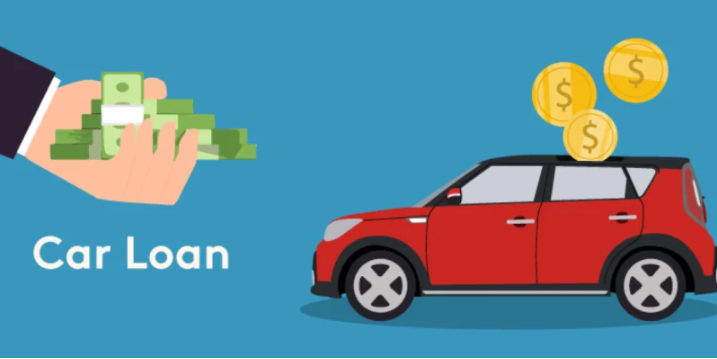Owning a car unlocks a world of freedom and convenience. But let’s face it, brand new vehicles often come with hefty price tags. This is where auto loans come in – a financial tool that can bridge the gap between your budget and your dream car. However, navigating the world of auto loans can feel overwhelming, with various terms, interest rates, and lenders vying for your attention. Don’t worry, this comprehensive guide will equip you with the knowledge you need to make informed decisions and secure the perfect auto loan to cruise towards your dream car.
Understanding Auto Loans
- What is an Auto Loan?
An auto loan is a secured loan provided by banks, credit unions, or online lenders specifically for purchasing a car. Secured means the car itself serves as collateral for the loan. If you fail to make payments, the lender has the right to repossess the vehicle.
-
Key Features of Auto Loans
- Interest Rates: Auto loan interest rates can be fixed or variable. Fixed rates remain constant throughout the loan term, while variable rates can fluctuate based on market conditions.
- Loan Terms: Auto loan terms typically range from 24 to 84 months, impacting your monthly payment amount.
- Down Payment: A down payment is a lump sum of money paid upfront towards the purchase price of the car. A larger down payment reduces the amount you need to borrow and can lead to lower interest rates.
Choosing the Right Auto Loan
- Know Your Credit Score: Your credit score significantly impacts the auto loan interest rate you’ll qualify for. Generally, borrowers with good or excellent credit will receive lower interest rates.
- Shop Around and Compare Rates: Don’t settle for the first offer you receive. Get quotes from multiple lenders to compare interest rates, loan terms, and down payment requirements.
- Consider Fixed vs. Variable Rates: Fixed rates offer predictability, while variable rates may be lower initially but carry the risk of increasing in the future. Choose the option that aligns best with your risk tolerance and financial goals.
Negotiating Your Auto Loan
- Negotiate the Interest Rate: While lenders set base interest rates, there may be room for negotiation, especially with good credit. Be prepared to present your creditworthiness and compare quotes from other lenders.
- Negotiate the Loan Term: A longer loan term translates to lower monthly payments but ultimately means you’ll pay more interest over time. Negotiate a term that fits your budget without extending the loan unnecessarily.
Financing a Used Car vs. New Car
- Used Cars: Generally, used cars come with lower loan amounts and potentially lower interest rates. However, they may also depreciate faster.
- New Cars: New cars often qualify for lower interest rates due to lower risk for lenders. However, they depreciate rapidly in the initial years of ownership.
The Bottom Line: Drive Away with Confidence
By understanding auto loans, comparing offers, and negotiating effectively, you can secure the financing you need to drive away with confidence in your new car. Remember, responsible borrowing is key. Make your loan payments on time and in full to avoid late fees and potential repossession. With careful planning and this guide as your roadmap, you’ll be well on your way to cruising towards your dream car!
Beyond the Basics: Advanced Auto Loan Strategies
Once you’ve grasped the fundamentals of auto loans, you can explore some advanced strategies to optimize your financing experience:
-
Pre-Qualification: Before you start shopping for cars, consider getting pre-qualified for an auto loan. This process involves a soft credit check that provides an estimated interest rate and loan amount you may qualify for. With a pre-qualification letter in hand, you have greater negotiating power with dealerships and can shop with more confidence.
-
Gap Insurance: Gap insurance covers the difference between the car’s actual cash value (ACV) and the loan amount in case of a total loss due to theft or accident. While optional, gap insurance can be valuable, especially if you’re making a low down payment or financing a car that depreciates quickly.
-
Private Seller Financing: Financing through a bank or credit union is common, but you can also explore financing options offered by private sellers. Carefully review the terms and ensure they are fair and align with your budget.
Choosing the Right Car for Your Loan
The car you choose significantly impacts your loan. Here are some factors to consider:
- Fuel Efficiency: Fuel-efficient cars translate to lower running costs, allowing you to allocate more funds towards your loan payments.
- Reliability: Reliable cars require less maintenance, saving you money in the long run and potentially avoiding unexpected repair costs that could strain your budget.
- Depreciation Rate: Cars depreciate over time. Consider models with slower depreciation rates to minimize the gap between the car’s value and your loan balance.
The Final Gear: Additional Tips for Auto Loan Success
- Factor in Total Ownership Costs: Beyond the loan payment, consider ongoing expenses like insurance, maintenance, and fuel costs when determining affordability.
- Read the Fine Print: Before signing any loan agreement, meticulously review the terms and conditions. Understand all fees, prepayment penalties, and early payoff clauses.
- Maintain Your Credit Score: While your credit score is a key factor when securing a loan, it also impacts your interest rate. Maintain good credit habits throughout your loan term to potentially qualify for lower interest rates on future loans.
Drive Off into a Bright Financial Future
By equipping yourself with knowledge, comparing offers strategically, and negotiating effectively, you can navigate the world of auto loans with confidence. Remember, an auto loan is an investment. By following the tips in this comprehensive guide, you can secure the financing you need to cruise towards your dream car while laying the foundation for a bright financial future.
